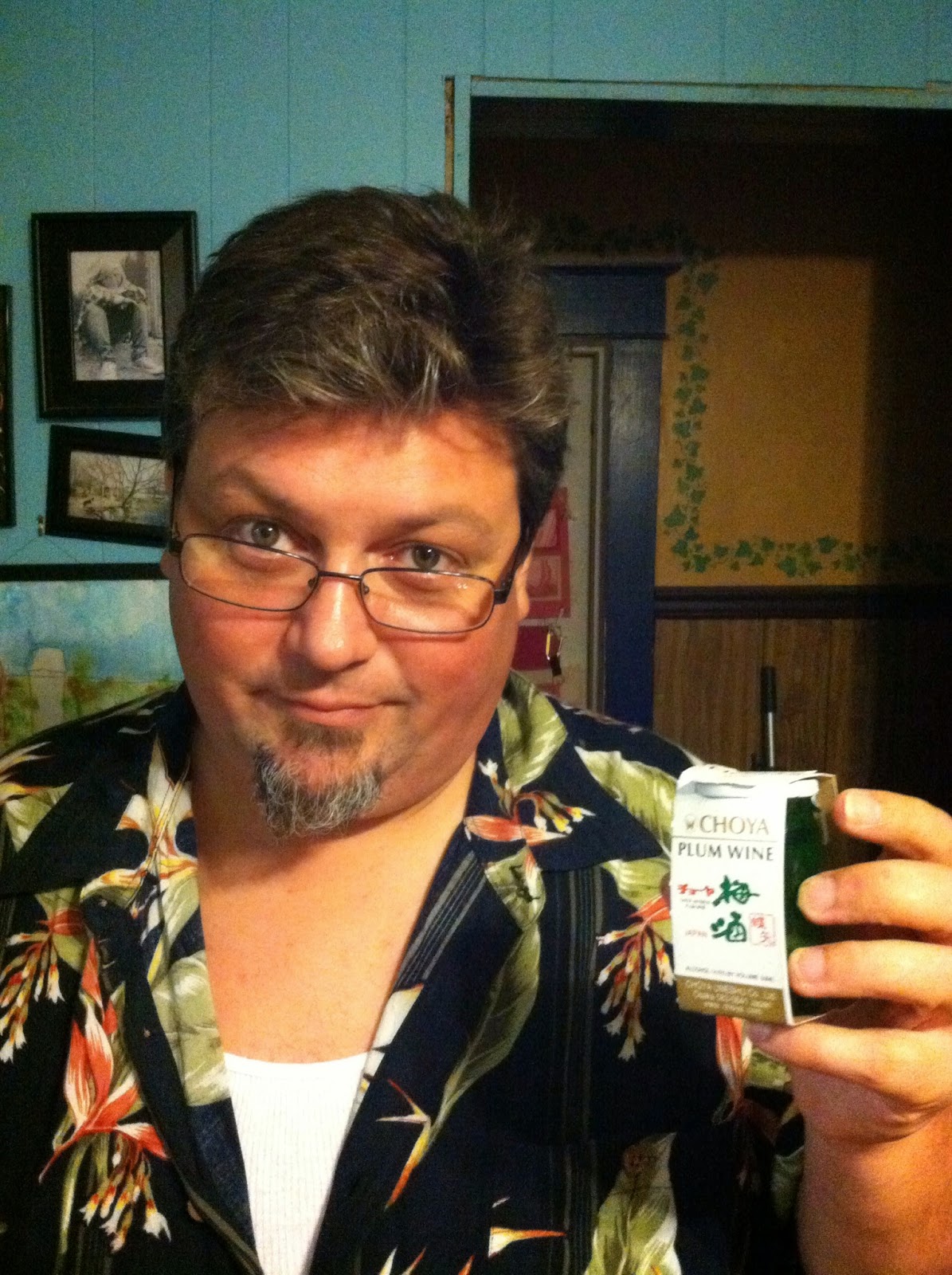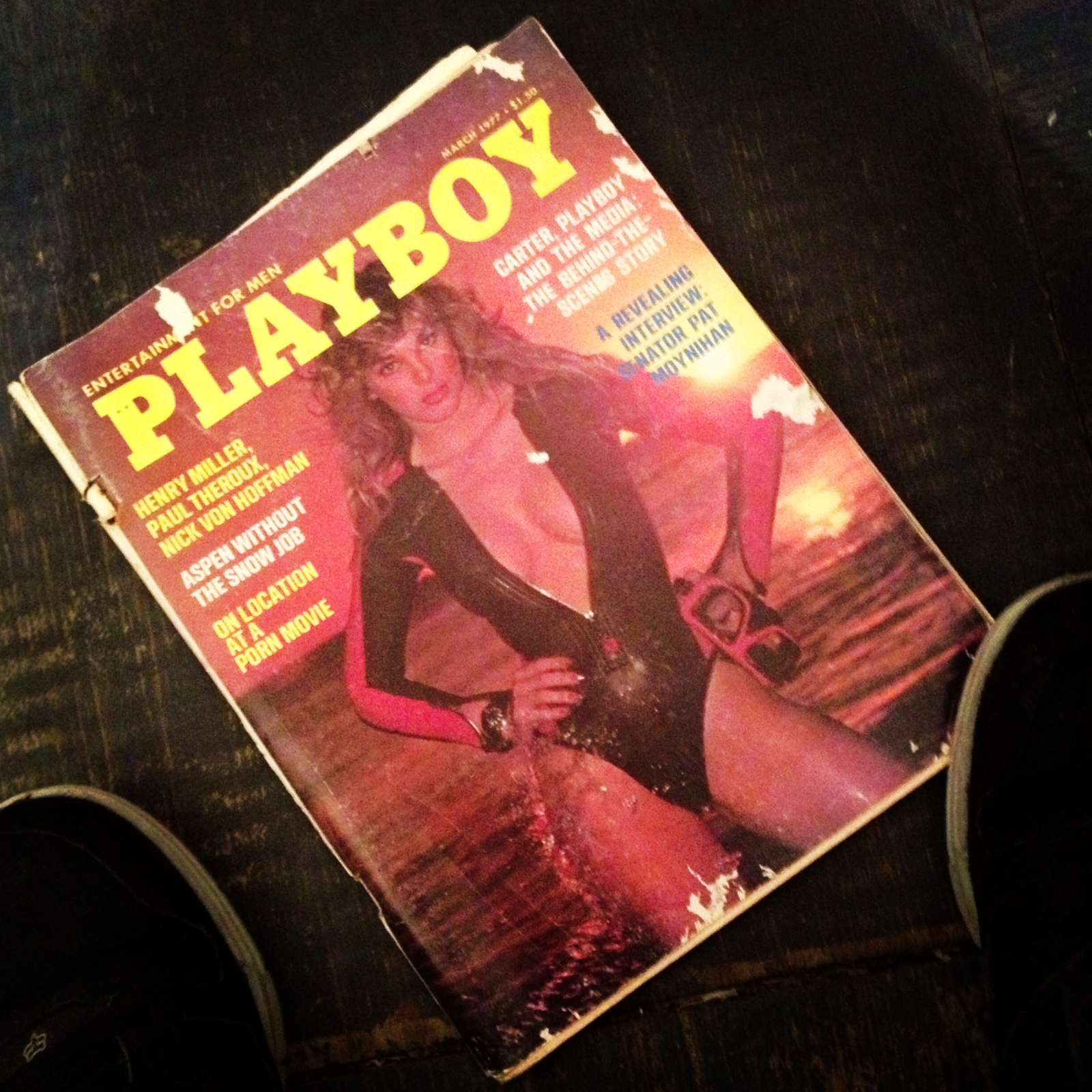Choya Plum Wine
It is possible, likely, even, that I will take some cheap shots at a Japanese company in what follows. While I am certain the notion of the offended Japanese CEO committing seppuku at hearing of a dissatisfied customer is malarky, it's better not to take any chances and offer a rare disclaimer:
The following subject matter is mildly ironic.
I remember being unreasonably offended that Harry Potter and the Philosopher's Stone was renamed for dumber American audiences. I wasn't offended at the assumption of the knuckle-dragging American. Hell, I live in rural America, where knuckle-dragging is a matter of pride on par with buying inferior products because they're not Japanese. What bothered me was the double insult. Somewhere, someone worried that the six kids left in America who can and do read for leisure would pass on the book thinking it was about Aristotelean geology.
By those lights, imagine how satisfying it was to see religious people lose their shit because of the word "Sorcerer." At some point, I'll write a conspiracy essay that concludes Christians were baited into providing the kind of free outrage publicity the disciples of Plato could never muster. And to be honest, this was my problem. I was outraged that no one was bothered by the fact that they were openly called stupid Americans and that their stupidity was brazenly marketed to. It was the kind of embarrassment you might feel watching your child trading his puny dime to an older kid for a larger nickel.
To be clear, the kids who never cease to be amused that they can get the dumber, weaker ones to trade a dime for a nickel go into advertising. An ad person must have a full and complete hatred for his fellow man. As P.T. Barnum is reputed to have said: "Nobody ever lost a dollar by underestimating the taste of the American public."
It is from this perspective that I present the GLQ for Choya Plum Wine:
I was intrigued by the Choya website. Occasionally websites are poorly translated, but the Choya website was clearly composed by an educated multi-lingual. The language is non-aggressive, so I suspect it was the work of a Japanese person fluent in English rather than the other way around. As someone whose understanding of Japanese culture is largely attributable to Hollywood, with the occasional Kurosawa film thrown in for good measure, the English Choya page feels right.
The label, then, is the toughest part to understand. The label clearly says, "Plum Wine," which is mind-boggling. The drink I'll be reviewing eventually (I swear) is something called Umeshu, which is in the plum family but definitely not a plum. I know this because of the Choya website pages:
"What's Umeshu?"
"Ume are NOT plums"
"Umeshu History" and
"Ume Flower"
A full 25 percent of what the Choya company wants you to know is that they don't make plum wine, even though that is precisely what it says on the bottles.
In America, our liquor industry is controlled by distributors. In deference to our Puritan roots, liquor is treated as the most dangerous substance on earth. Distributors hold the kind of sway over the liquor industry that makes the Mafia a little embarrassed at the abuse of power.
My working theory is, just as some mongoloid marketing person worried Americans wouldn't buy a book with the word "Philosopher" in the title, so too they would shy away from a liquor called Umeshu. Instead, they decided for marketing purposes to name it plum wine.
Mrs. Russo won't try it. Primarily because it's called plum wine and the fruit that is soaking in it is so clearly not a plum. It's as if, in Japan, Peter Pan Peanut Butter was marketed as Peter Pan Cashew Butter, 'cause they're in the same family.
The GLQ:
Given that I have no idea whether the Ume will be the peanut or the cashew in this scenario, I don't have any reasonable guess how it will taste. Although it is usually against my policy to have a tasting at anything other than room temperature, the Choya website was very clear:
Ume (NOT plum wine) is to be taken cold or hot. Room temperature is not a suggested serving option. Most liquor websites claim their liquor is good under any and all circumstances, but, given that they went so far out of their way to say the American labels are misidentified, I'm giving them the benefit of the doubt.
I believe it will be elegant and warm tasting. At 29 proof, I don't expect the sweetness to come from the alcohol so much as from the fruit. My guess is the fruit has a bitter quality that is not unpleasant. I would say it might taste like an unripe plum, but I don't need Yakuza trouble.
I'm going to give it a pre-taste of 3.5 out of five.
OK, it was less warm than I thought. It was less everything than I thought. So you know, an ume has the texture of an olive, but the sweetness of a Bartlett pear. Because the warmth fooled me, I'm going to downgrade it to a 3, which is a perfectly acceptable GLQ. I would drink it and even order it in a restaurant. Another regret is that I Vined it, because I think it would be much better sipped than shot.
The following subject matter is mildly ironic.
I remember being unreasonably offended that Harry Potter and the Philosopher's Stone was renamed for dumber American audiences. I wasn't offended at the assumption of the knuckle-dragging American. Hell, I live in rural America, where knuckle-dragging is a matter of pride on par with buying inferior products because they're not Japanese. What bothered me was the double insult. Somewhere, someone worried that the six kids left in America who can and do read for leisure would pass on the book thinking it was about Aristotelean geology.
By those lights, imagine how satisfying it was to see religious people lose their shit because of the word "Sorcerer." At some point, I'll write a conspiracy essay that concludes Christians were baited into providing the kind of free outrage publicity the disciples of Plato could never muster. And to be honest, this was my problem. I was outraged that no one was bothered by the fact that they were openly called stupid Americans and that their stupidity was brazenly marketed to. It was the kind of embarrassment you might feel watching your child trading his puny dime to an older kid for a larger nickel.
To be clear, the kids who never cease to be amused that they can get the dumber, weaker ones to trade a dime for a nickel go into advertising. An ad person must have a full and complete hatred for his fellow man. As P.T. Barnum is reputed to have said: "Nobody ever lost a dollar by underestimating the taste of the American public."
It is from this perspective that I present the GLQ for Choya Plum Wine:
I was intrigued by the Choya website. Occasionally websites are poorly translated, but the Choya website was clearly composed by an educated multi-lingual. The language is non-aggressive, so I suspect it was the work of a Japanese person fluent in English rather than the other way around. As someone whose understanding of Japanese culture is largely attributable to Hollywood, with the occasional Kurosawa film thrown in for good measure, the English Choya page feels right.
The label, then, is the toughest part to understand. The label clearly says, "Plum Wine," which is mind-boggling. The drink I'll be reviewing eventually (I swear) is something called Umeshu, which is in the plum family but definitely not a plum. I know this because of the Choya website pages:
"What's Umeshu?"
"Ume are NOT plums"
"Umeshu History" and
"Ume Flower"
A full 25 percent of what the Choya company wants you to know is that they don't make plum wine, even though that is precisely what it says on the bottles.
In America, our liquor industry is controlled by distributors. In deference to our Puritan roots, liquor is treated as the most dangerous substance on earth. Distributors hold the kind of sway over the liquor industry that makes the Mafia a little embarrassed at the abuse of power.
My working theory is, just as some mongoloid marketing person worried Americans wouldn't buy a book with the word "Philosopher" in the title, so too they would shy away from a liquor called Umeshu. Instead, they decided for marketing purposes to name it plum wine.
Mrs. Russo won't try it. Primarily because it's called plum wine and the fruit that is soaking in it is so clearly not a plum. It's as if, in Japan, Peter Pan Peanut Butter was marketed as Peter Pan Cashew Butter, 'cause they're in the same family.
The GLQ:
Given that I have no idea whether the Ume will be the peanut or the cashew in this scenario, I don't have any reasonable guess how it will taste. Although it is usually against my policy to have a tasting at anything other than room temperature, the Choya website was very clear:
Ume (NOT plum wine) is to be taken cold or hot. Room temperature is not a suggested serving option. Most liquor websites claim their liquor is good under any and all circumstances, but, given that they went so far out of their way to say the American labels are misidentified, I'm giving them the benefit of the doubt.
I believe it will be elegant and warm tasting. At 29 proof, I don't expect the sweetness to come from the alcohol so much as from the fruit. My guess is the fruit has a bitter quality that is not unpleasant. I would say it might taste like an unripe plum, but I don't need Yakuza trouble.
I'm going to give it a pre-taste of 3.5 out of five.


Comments